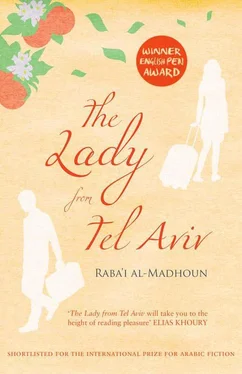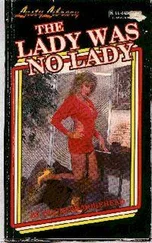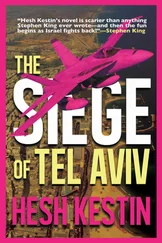The camera crew wraps things up and quickly leaves the plaza. They walk right through all of us and disappear. At this point, everyone begins to murmur: ‘Now they’re going to open up the crossing.’
I find myself staring at a man sitting in a wheelchair. He is wearing a baseball cap that hides half his face and his hands lie wilted on the armrests. His body is so slight, anyone could lift him and his chair at the same time.
The man swelters in the afternoon sun and is trying his best to gather his body beneath the shade of his hat. After some hesitation, I walk over to him. ‘The sun is too much, sir. Can I walk you over to the shade?’ I point toward a patch of unused shadow extending out from under the sunshade.
The man does not answer. He does not even raise his eyes to look at me. He shows no signs of wanting to see the face of a stranger who has offered to help him. He merely waves me away with his hand. Forget about it.
Is it pride or embarrassment? Or pure recklessness? I think for a moment and decide not to give up. ‘I’m only trying to help.’
‘I’m used to it, man. It’s not my first time sitting here and it won’t be the last. Whenever I go to Ramallah for treatment and try to come back, it’s always the same old crap.’
The loudspeaker interrupts us. I cannot make out what the voice is saying, but it ends my attempt to convince the man to let me help him.
As soon as the announcement is repeated, everybody begins to sprint toward the guard booth. Only then do I understand what the announcement was: that people should bring their identity cards and entry permits to the checkpoint kiosk.
The man in the wheelchair lifts his head toward me slightly, as if taking his leave. He smiles as he begins to roll toward the crossing.
Nearly all the men have disappeared from the plaza. Only women remain. After handing their IDs and permits to their male relatives, they stay with the infants and young children.
A handsome young man in glasses comes over to the man in the wheelchair and takes his identity card. The older man does not stop him as he walks over to the checkpoint kiosk. The man passes the identity card to a tall soldier with a face as red as a ripe tomato. The soldier stacks the cards and permits on top of one another in a large pile.
The young man returns to stand next to me. I am still standing exactly where I was. I have not moved at all, as if what is going on around me has nothing to do with me, or as if I had not been waiting for this moment for hours. I am genuinely confused about what is expected of me. The man in the wheelchair explains that what I am supposed to do is present my papers to the soldier at the kiosk. But as I understand it, the kiosk has nothing to do with me, since VIPs, I thought, were supposed to present them at the VIP entrance, which is on the other side of the checkpoint.
I hesitate before asking the young man next to me: ‘Excuse me, but where do people with passports go?’
Rather than answer me, he asks, ‘What kind of passport?’
‘British.’
He tells me give it to the soldier at the checkpoint kiosk. Then he mentions the fact that he himself carries a UN passport, and that he handed it in along with everyone else when they presented their identity cards and permits.
I pull my suitcase behind me as I walk over to the kiosk. I hand my passport to the soldier, who takes it without looking at me. He puts it in the pile with all the other papers. Then he shouts in Arabic: ‘Anyone else with an ID or permit?’
Another young man walks up to him and hands him two cards. The soldier disappears inside the kiosk while everyone stands around waiting.
The young man with the UN passport joins the crowd outside the kiosk. ‘Now what happens?’ I ask.
‘They inspect them in batches, then they call out people’s names. When you hear your name, you can go through.’
‘And the passports?’
‘They take them to the office over there.’ He points to the VIP office. Hearing this helps me calm down — it means that I am still very important, even if my passport is temporarily sitting alongside the other, less important travel papers in the soldier’s hand.
I go on waiting like everybody else — under the burning sun and with no shred of shade in which to take refuge except for the small one cast by my own body. Close by, I notice a five-year-old boy entertaining himself by kicking the ground with his foot. On his head, he wears a hat that he must have made out of green upholstery. Next to him stands a girl a couple of years older. She holds up her hands to shield her eyes from the glare of the sun. And a baby resting on her mother, sucking away at a pacifier, trying to find shade under the kerchief her mother holds over their heads. An old woman wraps her head in white gauze as she sits on the ground. Then I notice her bare feet. I am startled and begin to watch her. She mumbles to herself then lifts herself off the sun-baked gravel. She goes looking for shade under the utility pole.
I walk over to the pole and lean up against it, doubling the size of the slice of shade the old woman now sits in.
When I walk away again, my shadow splits from the pole’s and leaves the woman in full sunlight. As I go by, she looks up, shading her eyes with a hand into which time has etched the lines of her life. The other hand blocks out the light of the sun, and she studies me with a quick glance.
I bend down on my knees. ‘Good afternoon, ma’am.’
‘And to you, son.’
The way she pronounces ‘son’—with a wide open ‘o’ sound — makes my heart open wide in turn, like the sails of a small boat when a sweet breeze hits them. ‘Have you been sitting in this scorching heat for a long time, ma’am?’
‘More than two hours, son. What am I supposed to do? Yesterday, I had a bypass operation in Ramallah, and today I’m trying to get home. I’ve been going through checkpoint after checkpoint all day since early this morning. Sometimes the traffic moves, most times it doesn’t. And here I am, sitting and waiting until God frees us from this misery.’
‘Where are you headed to, ma’am?’
‘I’m trying to get back to Absan. Do you know where Absan is, son? You don’t look like you’re from around here.’
‘Do I know where Absan is? Of course I do — I know both Absans. I also know Khazaa!’
‘You speak like us, but you’ve got an accent from God knows where. You’re not from Absan are you?’
I sit down next to her. ‘When I was young, ma’am — when I was seventeen, I worked as a foreman for a contractor by the name of Abu Nabih Hejazi. We built the water tower in Absan and the one in Khazaa too.’
‘You haven’t been back in a while, have you?’
‘Not in thirty-eight years.’
‘Your poor mother. If I were her, I would have torn my hair out in grief. Is she still alive, son?’
‘Thankfully, yes. She’s been waiting for me to arrive since early this morning.’
‘God save us from this scorching sun. I wish God would throw them all into hell!’
This poor woman — what can I do? Stand over her and give her shade? Give her my suitcase to sit on?
Damn my awkwardness — it is only there to remind me how powerless we are. Suddenly, I get an idea. I open my backpack and take out a pair of Reeboks. I put them down next to the woman’s feet.
‘What’s this, son?’
‘Put them on your feet, ma’am. It is like walking on hot coals out here.’
‘I’m used to it, my boy. These look expensive.’
I lean over and help put them on. She tries to bat away my hands as she mumbles, ‘Please don’t. Really!’ Her embarrassment is as advanced as she is.
I pay no attention to her protests. ‘Don’t be so shy, consider me like your son, ma’am.’ I finish tying her shoes then stand up and go back to the pole. The old woman sits there throughout, calling out prayers in a voice so loud it fills the plaza. I lean up against the pole, lending the old woman some shade. I stand there as the minutes go by and the sadness of the scene finally gets to me. As tears begin to roll down my cheeks, I wipe them away. I wipe away my sadness too.
Читать дальше












